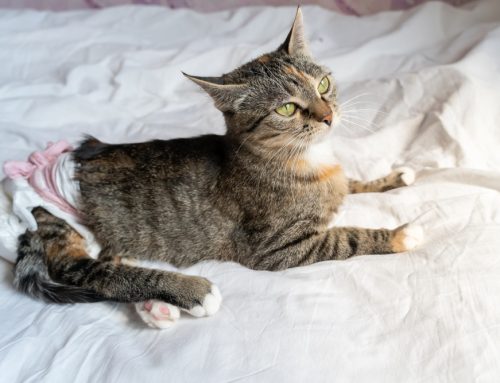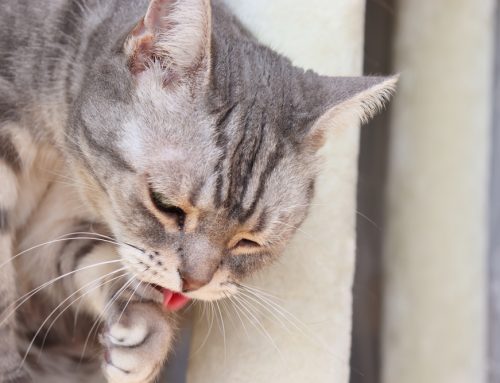As pet owners, it’s natural to want to share our lives—and sometimes our meals—with our beloved pets. However, many foods that are safe for humans can be harmful, or even deadly, to dogs and cats. This guide will walk you through common foods that are toxic to pets, what makes them dangerous, and how to act if your pet consumes something harmful.
Why Some Human Foods Are Dangerous
Pets process food differently than humans, and their systems are often unable to handle certain substances found in our food. What may be a delicious snack for you could cause severe health problems for your pet. Toxic reactions vary depending on the type of food and the amount ingested, but symptoms can range from mild gastrointestinal upset to life-threatening conditions. Read more about protecting your pet from common toxins in our blog.
Common Foods That Are Toxic to Pets
Here are some of the most dangerous foods for cats and dogs. If you have any of these foods in your home, be sure they are kept well out of reach.
Chocolate
Chocolate is one of the most well-known toxic foods for pets. It contains theobromine, a substance that is highly toxic to both dogs and cats. Even small amounts can cause vomiting, diarrhea, tremors, seizures, and, in severe cases, death. Dark chocolate and baking chocolate are especially dangerous due to their higher concentrations of theobromine. If your pet ingests chocolate, contact your veterinarian immediately. Your veterinary team will ask what kind of chocolate, how much was consumed in ounces or grams, how long ago it was consumed and your pet’s current weight.
Grapes and Raisins
Both grapes and raisins can cause kidney failure in dogs. While the exact cause of this reaction is not fully understood, even a small amount can be deadly. Symptoms include vomiting, lethargy, and decreased appetite, which can develop into acute kidney failure within a few days. Cats are less commonly affected, but it’s best to avoid feeding them grapes as well.
Onions and Garlic
Onions and garlic contain compounds that can damage a pet’s red blood cells, leading to anemia. This includes raw, cooked, or powdered forms, so be cautious when sharing food that may have these ingredients. Symptoms of anemia in pets include weakness, lethargy, vomiting, and a reduced appetite. Both dogs and cats are susceptible, though cats are more sensitive to these compounds.
Xylitol
Xylitol is a sugar substitute often found in sugar-free gum, candy, and some baked goods. In dogs, xylitol can cause a rapid insulin release, leading to hypoglycemia (low blood sugar). Symptoms include vomiting, loss of coordination, seizures, and in severe cases, liver failure. Cats are less sensitive to xylitol, but they should still avoid it. If you suspect your pet has ingested anything containing xylitol, this is an emergency—seek veterinary care immediately.
Avocado
While avocado is a healthy snack for humans, it contains a toxin called persin, which can cause vomiting and diarrhea in dogs. Birds and small mammals, such as rabbits, are especially sensitive to avocado and should never be fed this fruit. Though cats may not react as severely, it’s best to keep avocado out of their diet as well. Also be aware that avocado pits are common causes of intestinal obstruction in dogs, so dispose of your pits properly!
Alcohol
It might seem obvious, but alcohol is extremely toxic to both cats and dogs. Even small amounts can lead to vomiting, disorientation, difficulty breathing, and potentially death. Pets can accidentally ingest alcohol by licking spills, or from foods that contain alcohol, so always be mindful when handling alcoholic beverages and foods made with alcohol.
Macadamia Nuts
Macadamia nuts are highly toxic to dogs, causing symptoms such as vomiting, lethargy, and tremors. In more severe cases, macadamia poisoning can lead to hyperthermia (elevated body temperature) and even neurological symptoms. Cats are less likely to eat these nuts, but they should still be kept away.
Caffeine
Caffeine, found in coffee, tea, energy drinks, and certain sodas, can cause a rapid increase in heart rate, restlessness, tremors, and even seizures in pets. Cats and dogs are much more sensitive to caffeine than humans, and even a small amount can be harmful. Be sure to keep your coffee mugs and energy drinks out of reach.
How to Keep Your Pets Safe

To avoid accidental poisoning, here are some precautions every pet owner should take:
- Store toxic foods securely: Make sure that potentially harmful foods are stored in cabinets or on high shelves where your pets can’t reach.
- Be cautious during meal prep and parties: Keep an eye on your pets when preparing food, especially during holidays and gatherings when there are more dangerous foods available.
- Educate your household: Ensure that everyone in your family is aware of which foods are harmful to your pet. This includes being mindful when feeding table scraps or treats.
What to Do if Your Pet Eats Something Toxic
If you suspect your pet has ingested a toxic food, contact your veterinarian or an emergency pet clinic immediately. The ASPCA Poison Control is another great option. Time is critical in these situations. Knowing what your pet ate and approximately how much can help the vet determine the best course of action. In some cases, getting your pet to vomit up these toxic foods may be necessary, but this should only be done under veterinary supervision.
At Heartland Veterinary Hospital, we are here to provide guidance and care for your pet in the case of accidental poisoning. Whether it’s an emergency or you have concerns about your pet’s diet, don’t hesitate to contact us.








Leave A Comment